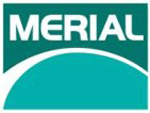Dairy producers could potentially be losing performance and returns if they are not treating for internal parasites in replacement heifers. But Dr. Tom Van Dyke, manager of Large Animal Veterinary Services for Merial, says producers can easily stop parasites from sucking profitability from their bottom line.
Increased age at first calving lowers lifetime milk production.
“Dairy producers want to get the improved genetics and production of replacement heifers in the milking herd as quickly and efficiently as possible,” Van Dyke says.
In addition, any delay in breeding and calving can also dramatically increase rearing costs – as much as $50 per heifer for each month beyond 24 months.
“Taking a proactive approach to parasite control can help reproductive performance and help cattle reach their full potential,” Van Dyke says.
That’s because heifers are best bred by weight rather than age. And parasites can have a significant effect on an animal’s ability to gain weight, delaying time to first breeding. Young animals, such as calves and replacement heifers, are the most susceptible to these negative effects.
“Unfortunately, producers don’t always include parasite control into their grazing management plan, and when they do, it typically only addresses part of the problem,” says Van Dyke.
He notes that the goal of most deworming programs is to eliminate the worms in animals. Unfortunately, only ten percent of worms are actually in the animals. The rest are on the pasture, waiting to re-infect cattle. It takes about 100 days of continuous parasite control to reduce the parasite burden on pasture.
“If parasite burdens are controlled in the pasture, they’ll be controlled in the herd,” says Van Dyke.
Conventional dewormers only last 14 to 42 days. That’s not long enough to protect cattle the whole season, or have an effect on the parasites on the pasture. Only
LONGRANGE® (eprinomectin) delivers up to 150 days of parasite control in a single treatment.
In a trial of 603 heifer calves over 155 days, those treated with a single dose of LONGRANGE gained an average of 24.9 pounds more than calves treated with DECTOMAX® (doramectin). LONGRANGE is not for use in female dairy cattle 20 months of age or older.
“Parasite infections can cause a reduction in weight gain, delaying a heifer’s introduction into the milk stream,”4 says Van Dyke. “Since the age at first calving is crucial to a successful replacement program, producers developing heifers on grass must take a comprehensive approach to address parasites in animals – and the pasture – to help ensure animals will produce to their full potential.”
IMPORTANT SAFETY INFORMATION FOR LONGRANGE: Do not treat within 48 days of slaughter. Not for use in female dairy cattle 20 months of age or older, including dry dairy cows, or in veal calves. Post-injection site damage (e.g., granulomas, necrosis) can occur. These reactions have disappeared without treatment.
Producers can learn more about LONGRANGE by contacting their local Merial sales representative or visiting www.theLONGRANGElook.com.
 About Merial
About Merial
Merial is a world-leading, innovation-driven animal health company, providing a comprehensive range of products to enhance the health, well-being and performance of a wide range of animals. Merial employs approximately 6,200 people and operates in more than 150 countries worldwide with close to €2 billion of sales in 2013. Merial is a Sanofi company. For more information, please see www.merial.com.









